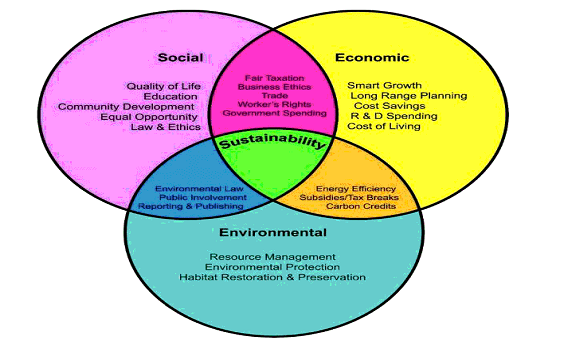How education help to improve sustainable development
World population is increasing rapidly and now it leads to more than 7 billion human’s population of the whole world. Increase in the population leads to many problems related to economic, social and environmental development. These issues include, lack of natural resources, biodiversity, climate change, pollution, poverty, poor economic growth, many health problems, inequality and poor social interaction etc. These problems cause unsustainability to the environment. Therefore, it is necessary to keep the natural resources in a balanced form to meet the needs of both present and future generations.

Education plays a vital role in sustainable development. It develops knowledge, values, skills, and attitude through which people change their perspective towards quality of life. Each human in this planet is responsible to participate in the social activities and should give services through getting knowledge and skills by education. Following are the factors to improve sustainable development through education.
⦁ Balance in output and input ratio of production of goods to improve economic growth which reduce poverty. Education provides knowledge and skills to the workers or labors of the industries which enhance the economic growth.
⦁ Introduce modern technologies to cure disease and to improve health.
⦁ give awareness to the people about importance of natural resources and their effective use.
⦁ Techniques for energy reservation used for electricity and transport.
⦁ Introduce technologies to improve agricultural production and effective use of fertilizers to reduce pollution.
⦁ Introduce forest rehabilitation techniques.
⦁ Improvement in social behavior at local, national and international level.
These all above factor could be accomplished through well-organized education system. Therefore, it is important to analyze the problems related to current education system and should find the ways to overcome educational problems.
Education system for sustainable development:
There are basically three types of education system which includes:
⦁ Formal education
⦁ Non- formal education
⦁ Informal education
Formal education consists of structured and planned curriculum by the government. Students get education by trained teachers. It involves basic subjects related to science, arts and commerce which at higher study divided into engineering and medical sciences. Formal education systems are very slow to change and their reorientation may take a long time to give results.
Non-formal education system consists on flexible curriculum. There is no need of proper attendance of the students, there is no need to interaction among students and teachers. It consists of student’s interest and most of the activities takes place outside the institution.
Informal education is not specifically structured and organized. It involves skills or knowledge through observation and experiences. Informal education system also includes learning from radio, television, internet, incidents etc.
All forms of education system are important for the sustainable development but non-formal and informal education system help more to adopt better social and environmental interactions.
There are mainly three levels of education:
⦁ Primary level includes elementary school
⦁ Secondary level includes middle school, high school, and preparatory school
⦁ Post-secondary level includes university, community college, vocational schools